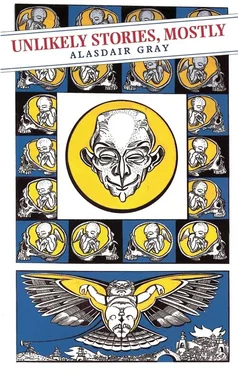Your ambassadors have told me what you wish to know. Yes, my empire is very big, very rich, and also very old. This is mainly because we are a single race who talk the same language. We produce all we need inside our borders and do not trade with foreigners. Foreign trade leads to warfare. Two nations may start trading as equals but inevitably one grows rich at the expense of the other. Then the superior nation depends on its enemy and can only maintain its profits by war or threats of war. My kingdom has survived by rejecting foreign trade. The goods which appeared in your market were smuggled out by foreigners. We will try to stop that happening again.
If your people want stability they must grow small again. Let them abandon empire and go back inside their old frontier. Let them keep an army just big enough for defence and cultivate their own land, especially the food supply. But this is useless advice. You and I are mere emperors. We both know that a strong class of merchants and generals cannot be commanded against their will. Wealthy nations and men will embrace disaster rather than lose riches.
I regret that I cannot show a way out of your difficulty. Perhaps the immortal gods can do that. Have you approached them? They are the last resort, but they work for the peasants, so people of our kind may find them useful.
The emperor was startled by the last words of this intelligent and powerful man. Several countries in the empire worshipped him as a god but he was not religious. The official religion of the state had been a few simple ceremonies to help it work as smoothly as possible. An old proverb Religion is the wealth of the conquered described our view of more exotic faiths. But the religions of conquered people had recently become fashionable at the hub, even with very wealthy citizens. These religions had wide differences but all believed that man had descended from someone in the sky and were being punished, tested or taught by having to toil in the world below. Some faiths believed that a leader would one day come down from heaven, destroy all who opposed him and build a kingdom on earth for his followers. Others bowed to prophets who said that after death the ghosts of their followers would enter a walled garden or city in the sky. These politically stable goals appealed to the emperor. He consulted priests in the hope that unreason would answer the question which reason could not.
He was disappointed. The priests explained that the eternal kingdom was achieved by sharing certain beliefs and ceremonies, following certain rules, and eating or avoiding certain food. Those who obeyed the priests often enjoyed intense feelings of satisfaction, but even if the whole empire adopted one of these faiths the emperor did not think it would be less liable to decay and civil war. Many priests agreed with him. “Only a few will enter the heavenly kingdom,” they said. The emperor wanted a kingdom for the majority. He sent agents to consult prophets and oracles in more and more outlandish places. At last he heard of a saint who lived among the perimeter tribes in a wild place which no bribe could persuade him to leave. This saint’s reputation was not based on anything he taught, even by example, for he was an unpleasant person. But he had cured impotence, helped someone find a lost legacy and shown a feeble governor how to master a difficult province. Most people who brought him problems were ordered rudely away but his successes were supernaturally startling. The emperor went to see him with a troop of cavalry.
The saint was small, paunchy and bow-legged. He squatted before a crack in a rocky cliff, grinning and blinking mirthlessly, like a toad. The emperor told the soldiers to wait, went forward, knelt before the saint and talked about the problem of empire. After a silence the saint said, “Are you strong?”
The emperor said, “My life has been easy but my health is excellent.”
The saint felt the emperor’s pulse, examined the insides of his eyelids then said gloomily, “You are strong enough, yes, I can help you. But I won’t enjoy it. Give me some gold.”
The emperor handed him a purse. The saint stood up and said, “Fetch wine and oil from your men and come into my house. Tell them they won’t see you till tomorrow evening. Make that perfectly clear. If they interrupt us before then you won’t learn a thing. Let them pass the time making a litter to carry you in, for when you reappear you will be in a sacred condition. The expression of your face will have completely changed.”
Nobody had spoken to the emperor like that since he was a small boy and the words made him feel strangely secure. He did as he was told and then followed the saint into the crack in the rock. It led to a cave they had to stoop to enter. The saint struck a flint, lit a twisted rag in a bowl of fat, then picked up a wooden post. His dwarfish body was unusually powerful for he used the post to lever forward a great boulder till it blocked the entrance and shut out all daylight. Then he squatted with his back to the boulder and stared at the emperor across the foul-smelling lamp on the floor between them.
After a while he said, “Tell me your last dream.” The emperor said, “I never dream.”
“How many tribes do you rule?”
“I rule nations, not tribes. I rule forty-three nations.” The saint said sternly, “Among the perimeter people a ruler who does not dream is impossible. And a ruler who dreams badly is stoned to death. Will you go away and dream well?”
The emperor stared and said, “Is that the best you can say to me?”
“Yes.”
The emperor pointed to the boulder and said, “Roll that thing aside. Let me out.”
“No. You have not answered my question. Will you go away and dream well?”
“I cannot command my dreams!”
“Then you cannot command yourself. And you dare to command other people?”
The saint took a cudgel from the shadows, sprang up and beat the emperor hard for a long time.
The emperor’s early training had been stoical so he gasped and choked instead of screaming and yelling. Afterwards he lay against the cavern wall and gaped at the saint who had sat down to recover his breath. At last the emperor whispered, “May I leave now?”
“But will you go away and dream well?”
“Yes. Yes, I swear I will.”
The saint groaned and said, “You are lying. You are saying that to avoid being beaten.”
He beat the emperor again then dropped the cudgel and swigged from the wine-flask. The emperor lay with his mouth and goggling eyes wide open. He could hardly move or think but he could see that the saint was in great distress of mind. The saint knelt down, placed a tender arm behind the emperor’s shoulders, gently raised his head and offered wine. After swallowing some the emperor slept and was assaulted by horrible nightmares. He was among slaves killing each other in the circus to the wild cheering of the citizens. He saw his empire up on edge and bowling like a loose chariot-wheel across a stony plain. Millions of tiny people clung to the hub and to the spokes and he was among them. The wheel turned faster and faster and the tiny people fell to the rim and were whirled up again or flung to the plain where the rim rolled over them. He sobbed aloud, for the only truth in the world seemed to be unending movement, unending pain. Through the pain he heard a terrible voice demand:
“ Will you go away and dream well? ”
He screamed: “I am dreaming! I am dreaming!”
The voice said, “ But not well. You are dreaming the disease. Now you must dream the cure .”
And the emperor had a general impression of being beaten again.
Later he saw that the boulder had been rolled aside. Evening sunlight shone through the entrance. The saint, who had cleaned the bruises with oil, now made him drink the last of the wine. The emperor felt calm and empty. When the saint said, “Please, please, answer my question,” the emperor shook with laughter and said, “If you let me go I will pray all the gods to give me a good dream.”
Читать дальше












